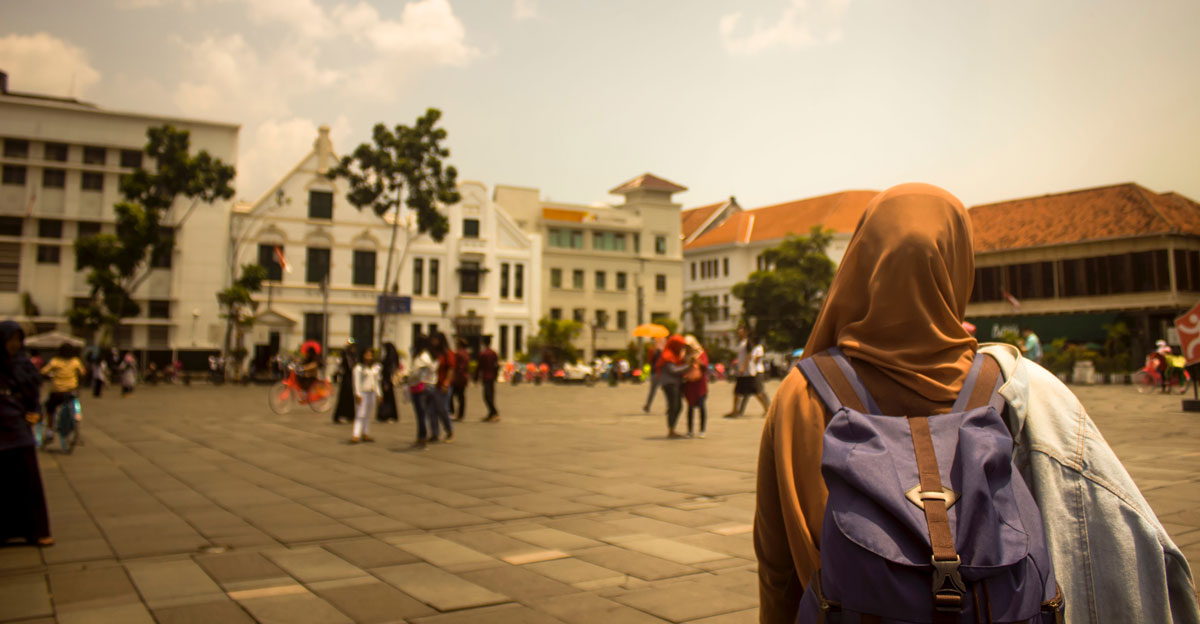
Collaborating Towards a More Resilient City
octobre 1, 2019 — The Big Picture
Urban Resilience. A notion so wide it can be seen from many different perspectives of understanding. Whether it is to prepare for a shock that may happen suddenly or tackle a stress that has been constantly disrupting the city’s function, being ‘resilient’ means that a city needs to have the capacity to prepare and bounce back stronger from whatever happens within it. In that sense, we can say that ‘resilience’ is a broad notion as it will need to focus on the (i) health and wellbeing of city inhabitants, (ii) economy and society, (iii) infrastructure and environment of the city, and (iv) leadership and strategy within the city. Along with broadness, resilience also comes with complexity. Those complexities originate from the interdependencies of the aspects that are being covered by the notion of ‘resilience’.
By realizing that resilience is a broad and complex concept, a city needs to have a holistic approach to achieve resiliency. In that regard, a city needs to have a comprehensive discussion on policies, programs, projects, grassroot initiatives, and research to tackle challenges and build resiliency. Therefore, it will be helpful to have some kind of reference or guidelines in the form of a City Resilience Strategy. Reflecting on experience in Jakarta, the City’s effort in resilience-building gained new momentum in May 2016 when the city was selected to be a member of 100 Resilient Cities (100RC) Network pioneered by The Rockefeller Foundation. By having a holistic strategy, the resilience building effort can be executed more effectively.
Being one of the largest metropolitan cities in Indonesia, even Asia, formulating the Jakarta City Resilience Strategy is certainly not an easy thing to achieve. The differences among stakeholders and overlapping authority is a big issue that cannot be underestimated. Therefore, formulating the City Resilience Strategy must begin with a spirit of collaboration that brings together various stakeholders throughout the entire process. This is also an important part of ensuring that a diversity of aspects within urban resilience can be discussed and followed-up in depth and on target. The City Resilience Strategy becomes the representation of the shared vision of each stakeholder, working to address the problem of working in silos and fragmented governance.
In line with the spirit of making Jakarta a “City 4.0”, the development of City Resilience Strategy of Jakarta has been through a rigorous collaborative process that involved more than 1000 stakeholders in more than 50 workshops, forums, public consultations, seminars, and meetings; analyzing more than 200 programs and 20,000 projects and grassroot initiatives. By doing this, The City Resilience Strategy of Jakarta has become a document that contains shared visions, consensus, and commitment in a practical way to build Jakarta’s resiliency. One lesson learned from Jakarta is the importance of political will. Leadership within Jakarta has shown a commitment to creating a better future by appointing a High-Level Officer (The Deputy Governor of DKI Jakarta for Spatial Planning and Environment) as the Chief Resilience Officer (CRO) to smoothen up the process.
« Every counterpart within the city needs to be involved in making it more resilient; collaboration is crucial. »
At the end of the day, we can conclude that achieving city resilience requires immense effort, however, it’s not an impossible task. Every counterpart within the city needs to be involved in making it more resilient; collaboration is crucial. All of the efforts being done also need to take a holistic lense; when all systems are able to work together, it is safe to say that we are moving closer to becoming a resilient city.
Resilience Strategy of Jakarta (in Bahasa Indonesia) can be downloaded here.